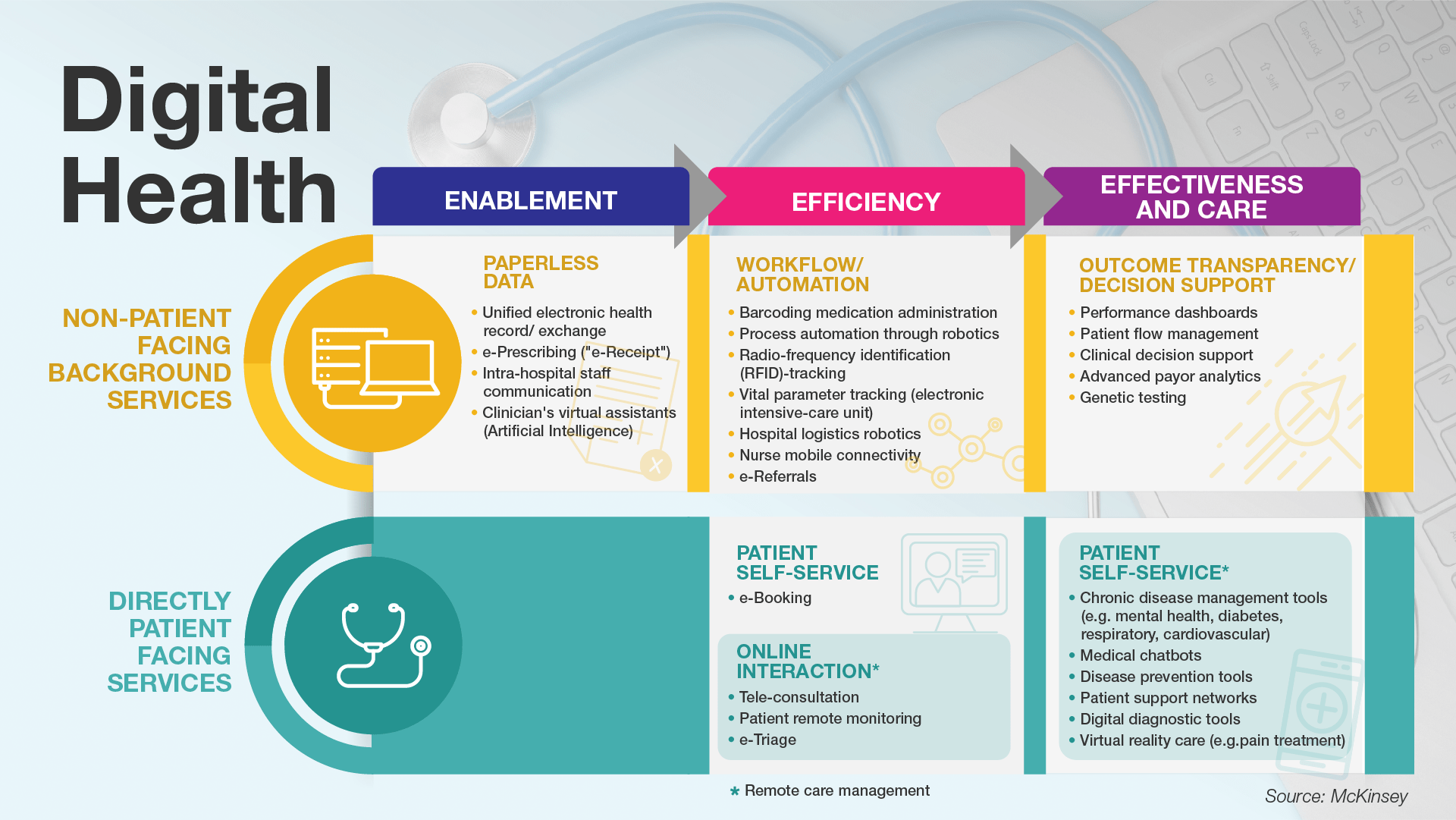We are currently upgrading our website. Please bear with us if you are experiencing any loading issues.

APACMed
The Voice of MedTech in Asia
Thank you to all our sponsors, speakers and attendees for making the APACMed Digital Health Symposium 2021 a success!
Accelerating Digital Health:
Spotlight on New Care Models
For the past decade, digital health has been heralded as the next disrupter in the delivery of care, but the reality is that, globally, there has been minimal uptake in widespread adoption. While the technology has made great strides to enable digital health, providers, payers, and consumers have been slower to adopt than was anticipated, in part due to slow regulatory approvals and the lack of an adequate reimbursement model. Having said that, the COVID-19 pandemic has been a catalyst in advancing some digital health solutions, specifically in remote patient care.
Building on this momentum and to facilitate the acceleration of digital health, APACMed is organizing the inaugural edition of their Digital Health Symposium.
It aims to bring together international and regional leaders to share learnings around use cases that have succeeded and discuss how Asia can accelerate the implementation of digital health solutions. Speakers will share valuable insights on reimbursement models and challenges to successful remote care management implementations to deliver better patient outcomes.

Remote Care Management Is Here To Stay
Are We Ready?
If there is one good thing that resulted from the pandemic crisis, it is our ability to adapt and respond to unforeseen needs with unimaginable speed. At a time when we avoid overcrowding in hospitals and unnecessary trips to the doctor, more medical care is being delivered virtually than ever before – and remote patient care is making it possible.
Yet with health technology outpacing regulatory development, there is much the MedTech industry can do to play a more active part in development discussions with regulators to modernise and harmonise digital health regulation across the region.
It is for this reason that the Asia-Pacific Medical Technology Association (APACMed) formed the Digital Health Committee last year, to drive proactive dialogue around key themes such as regulation, reimbursement, interoperability, and cybersecurity.
Expected to be worth US$2 billion globally by 2027, at a 14% CAGR, Remote Care Management (RCM), or the expansion of care beyond traditional settings enabled by digital solutions, represents an important component in the continuum of care.
But before anyone jumps on the RCM bandwagon, there are incumbent challenges in the ecosystem that need to be addressed, in terms of business models, treatment paradigms, and impact evaluation.
Take the example of Siemens Healthineers’ HerzConnect care program, a post-acute telecare platform for patients with heart failure. While it is approved and reimbursed through private insurance in Europe and rolled out in conjunction with leading heart and diabetes centers, the road to scale-up in the Asia-Pacific region is less clear.
"The attention on digital health and enabling elements like RCM is encouraging. But we still have some way to go in addressing delivery and financing challenges, in order to provide greater access and affordability to patients."
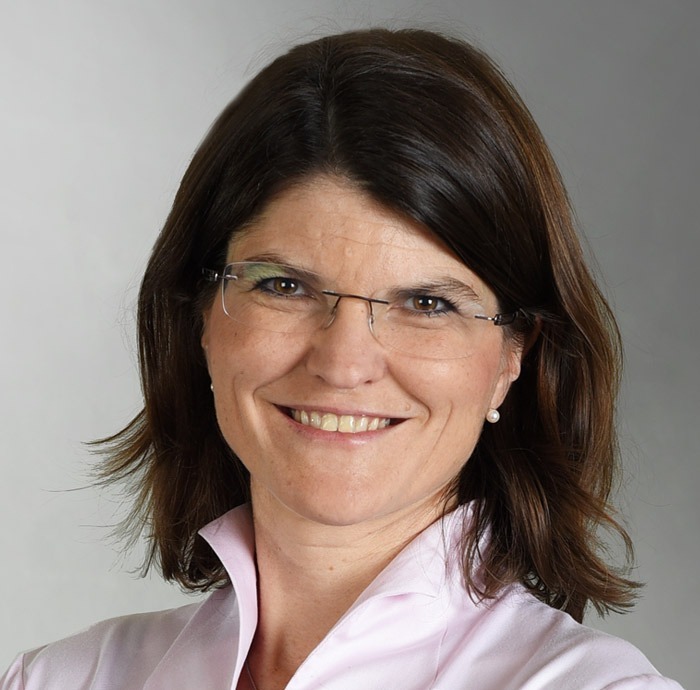
Elisabeth Staudinger
APACMed Board Member and Asia-Pacific President of Siemens Healthineers
Leading the way to accelerate new remote care models in the region, APACMed is for the first time, putting industry players, healthcare payers and providers, and policymakers together on stage to discuss the reimbursement models and challenges to successful remote care management implementations in Asia.
Join us at the APACMed Digital Health Symposium on 4 May 2021 to explore and discuss clinical, operational and policy considerations to support a scalable RCM program for your digital health solution. Read more on Baxter solutions below:
The Rise of Patient Home Care for Chronic Disease Management
Remote Care Management (RCM) is increasingly important in driving digital health adoption. RCM empowers patients along the care continuum for successful implementation of connected healthcare.
Despite the near-term focus on COVID-19 recovery, we know more effective chronic disease management is essential to hit 2030 Sustainable Development Goals, including those aimed at achieving Universal Health Coverage.
"The insights advancements and tooling for RCM in pathways like dialysis are moving quickly, especially in light of COVID-19. However, further ecosystem dialogue is needed in order to ensure regulation, reimbursement, interoperability, and even cybersecurity issues are appropriately addressed."

Andrew Frye
Chair of APACMed’s Board and Baxter’s Asia-Pacific President
Chronic diseases, responsible for more than 75% of deaths in parts of the Asia-Pacific region , are the result of demographic shifts, from urbanized lifestyles to increased life expectancy. Asia-Pacific studies point to billions in potential savings from improved self-care programs such as RCM.
Chronic conditions like kidney disease, traditionally cared for in institutionalized settings, are increasingly becoming decentralized, in-home, and digital enhancing patient outcomes thanks to real-time data. Baxter has developed a leading solution in renal care which allows healthcare providers to securely view their patients’ home dialysis data in real time. Healthcare providers can act on this information if they spot anomalies, without requiring patients to travel to the clinic.
Join us at the APACMed Digital Health Symposium on 4 May 2021 to explore and discuss clinical, operational and policy considerations to support a scalable RCM program for your digital health solution. Read more on Baxter solutions below:
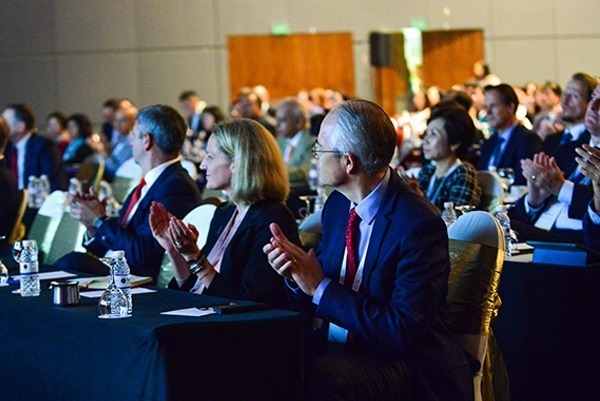
Be Inspired
Be inspired by an expert line-up of speakers and panelists including TedxHHL speaker, Farina Schurzfeld, Stanley Li, CEO of DXY, amongst other movers and shakers in the Medtech industry.
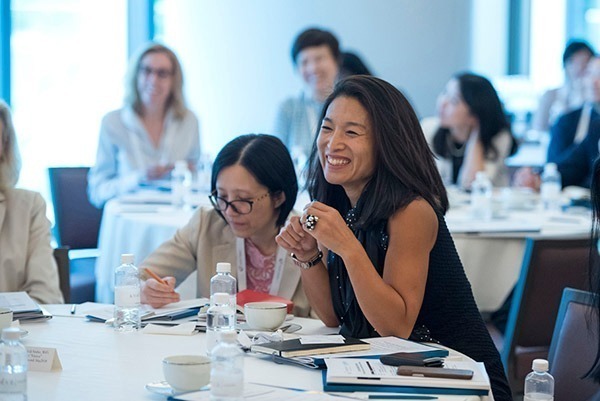
Be Part Of
Be part of the conversation on a hot topic: Remote Care Management and Reimbursement where you get real life, practical insights through no-hold-barred, honest discussions.
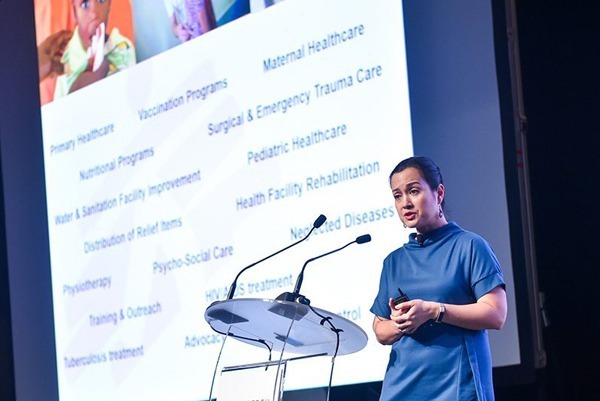
Contribute To
Contribute to the collective voice in influencing digital health policy formulation through dialogues with policymakers and payers in Asia.
What Can You Expect
Highlights
- Learn about existing case studies on reimbursement and monetization of remote care management (RCM) models today in Germany and China
- Uncover patient populations which are most likely to benefit from RCM
- Examine the role of RCM against the current pandemic
- Discuss clinical, operational and policy considerations to support a scalable RCM program
- Explore ways to integrate RCM into the continuum of care in Asia
What does a successful remote care model and market access ecosystem look like?
Lessons learned from German digital health care model from an ecosystem perspective from founders and industry shapers.
How do digital health solutions integrate along the continuum of care? How do they qualify and quantify the value created to the total healthcare system?
Deep dive on China digital health platforms to understand their journeys in establishing presence in remote care management.
What are the monetization and reimbursement pathways for digital health solutions? Who are the users, who are the payers, and who gets the benefits?
Leading industry case examples and reflections of the current challenges and path forward for MedTech.
Symposium Agenda
Welcome & Opening Address: Digital Health landscape and trends
4:00 — 4:15pm
With the current global healthcare crisis causing unprecedented demands on our healthcare services and the way in which we carry out our daily lives, there is an opportunity for digital health solutions to support healthcare providers and the way we continue to provide care for patients. Could coronavirus be the catalyst to widespread digital uptake for healthcare?
Welcome by APACMed
Opening by MOHT
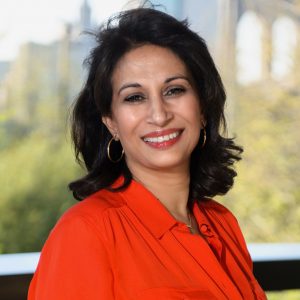
Harjit Gill
CEO, APACMed

Prof. Robert Morris
Chief Technology Strategist, Singapore MOHT
Expert Views: Insights on Remote Care Models in Germany
4:15 — 5:00pm
Reimbursement is a key challenge for many new digital health solutions, whose importance and value have been highlighted and expanded by the current COVID-19 pandemic. In this panel discussion, we outline the reimbursement and monetization use cases of remote patient monitoring in Germany, and discuss implementation challenges, lessons and opportunities.
Fireside Chat: Remote care management in Germany
- Opening & intro to German system
- Fireside Chat discussion (monetized/reimbursed RCM use cases, lessons learned, etc.)
Q&A

Farina Schurzfeld
Cofounder, Selfapy
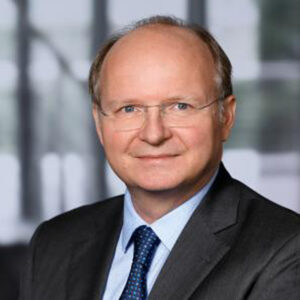
Prof. Volker Amelung
President, German Association of Managed Care

Wido Menhardt
EVP Digital Health, Siemens Healthineers
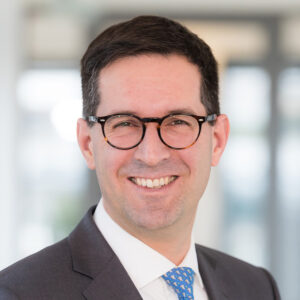
Dr. Stefan Biesdorf
(Moderator) Member of McKinsey Digital and McKinsey Analytics
Panel Discussion I: Imagining the future of Remote Care in China
5:00 — 5:45pm
As a result of the pandemic, there has been a rapid acceleration of wide-spread adoption of digital technology in the delivery of healthcare services such as remote patient monitoring and telemedicine in China. The panel will deep dive into China’s digital health platforms to share their journeys in establishing presence in remote care management.
Self intro
Panel discussion of remote care models and patient management in China
Q&A
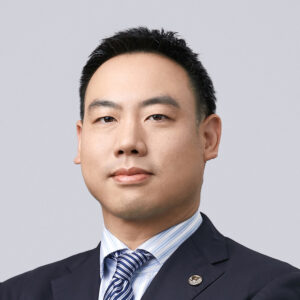
Geoff Kau
Co-president, Ping An international Smart City Technology
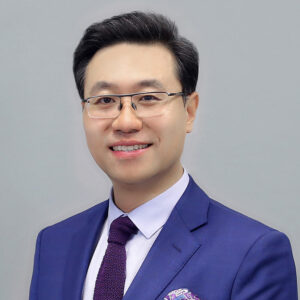
Stanley Li
CEO, DXY
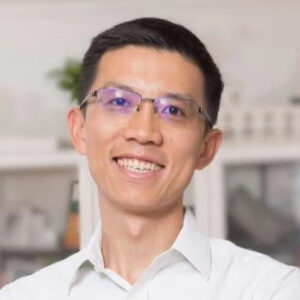
Chen Bo
Vice President, Ali Health

Florian Then, MD
(Moderator) Partner, McKinsey & Company
Panel Discussion II: Paving the path forward for MedTech in Asia
5:45 — 6:30pm
The rapid development of digital health present immense opportunities for access, clinical outcome and efficiency improvements across Asia. The panel will cover examples of leading industry case examples and reflections of current challenges and learnings to pave the way forward for medical technology in Asia.
Quick fire presentation of use cases and challenges
Panel discussion of learnings and path forward for RCM
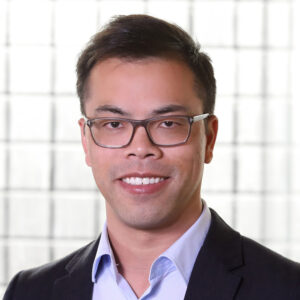
Justin Leong
President – Asia and Latin America, ResMed
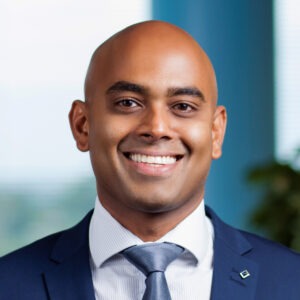
Shehaan Fernando
Regional Director – Virtual Care and Enterprise Care Collaboration, Philips
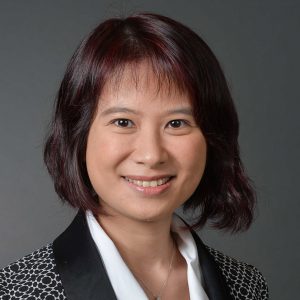
Anh Bourcet
(Moderator) Regional Director, Health Economics & Market Access, Johnson & Johnson.
Join the conversation as the MedTech industry comes together to make concrete recommendations to help shape the implementation of digital health policies that can accelerate access to healthcare with greater agility and quality of care. Connect with industry leaders, gain new perspectives on the challenges and opportunities of digital health innovations. Register for the APACMed Digital Health Symposium today!
Who Should Attend?
- Leaders from the Pharmaceutical and Medical Technology Industry
- Private and Public Healthcare Providers
- Payers
- Academia
- Technology Companies
- Governments and Policymakers
- Start Ups
Meet Our Speakers

Farina Schurzfeld
Experienced serial entrepreneur, Founder of Selfapy, TEDx speaker and growth hacker focusing on digital health topics
Read Bio
Farina Schurzfeld
Farina is a social entrepreneur, advisor and speaker. In 2017 she founded Selfapy – Germanys leading therapy platform for people suffering from mental health disorders. As a growth expert, she lived in Sydney where she became part of the founding team of the discount portal Groupon. Later she started Airtasker, a platform for mini jobs, which is now listed on the ASX where she led the (international) expansion. During that time, she also founded Sydney’s largest Co-Working Space TSL, which counts more than 400 members today. In 2017, Farina has been awarded as “Top 30 under 30” of Forbes Magazine as well as one of the “25 women, that make the world more sustainable”.
LinkedIn: https://www.linkedin.com/in/farinaschurzfeld
Twitter: https://twitter.com/farinas07?lang=de

Tiantian Li (Stanley Li)
Founder and Chairman of DXY, the largest and most active online community for healthcare professionals in China
Read Bio
Tiantian Li (Stanley Li)
Tiantian Li (Stanley Li), Founder and Chairman of DXY
Mr. Li earned his master’s degree in tumor immunology at Harbin Medical University and gave up his Ph.D. in neuromuscular disease research. He has been recognized as a leading player in the Internet health industry due to his insight and contribution. Mr. Li is also a visiting professor at Harbin Medical University, vice president of the health promotion commission in Zhe Jiang Province.
DXY (Ding Xiang Yuan)
Founded in 2000, DXY has become a leading digital service provider in the healthcare industry of China. DXY has built the largest and most active online community for professional users such as physicians, nurses, and pharmacists. It launched a series of web and mobile-based educational materials and tools to facilitate HCPs to learn evidence-based knowledge and improve clinical skills. Currently, DXY has covered over two million Chinese doctors, 70% of total doctors in China. DXY launched the first COVID-19 dashboard globally, cited by JHU, WHO, CDC, Lancet, and acquired 5 billion visitings.
Since 2015, DXY has launched the “DX-Doctor” with products and services targeting health and wellness. DX-Doctor has become the most well-known and trusted brand to the massive population in China. DX-Doctor provides data-driven online/offline products and services to fulfill consumer’s demands for a healthy lifestyle. In five years, DX-Doctor has touched over 130 million consumers. During the COVID-19 pandemic, DX-Doctor has created over 3,600 articles and video clips to fight the infodemic, which acquired 4 billion visitings.

Wido Menhardt
Executive Vice President Digital Health at Siemens Healthineers, strategist and evangelist for healthcare digital transformation
Read Bio
Wido Menhardt
Global entrepreneurial leader with more than 30 years of experience in advanced medical imaging, computer assisted diagnosis, large-scale healthcare IT transformation and clinical informatics. Wido Menhardt is experienced in leading workforces of 2000+ engineers and innovators in the field of enterprise imaging and clinical informatics. During his past tenures at e.g. Philips and Beckman Coulter (Danaher) he powered global healthcare IT and informatics solution businesses with $500 – $700+M revenue impact, respectively. Along his CDS (clinical decision support) focused career path, his broad area of expertise bridged fields such as strategy and evangelism for digital transformation of healthcare, the transition to cloud deployment, introduction of large-scale IoT platforms, development and deployment of operational analytics solutions, and the development of value propositions for mobile solutions across global product and solution portfolios. Currently Wido Menhardt is serving as Executive Vice President Digital Health at Siemens Healthineers. His global employee base supports and automates clinical decisions along the patient journey, driving efficiency, quality and standardization. He is also driving the entrepreneurial digital transformation of 52,000+ Siemens Healthineers.

Prof. Robert Morris
Chief Technology Strategist at MOHT, focusing on the application of computer and information sciences, including AI, to transform healthcare
Read Bio
Prof. Robert Morris
Dr. Robert JT Morris is Professor, National University of Singapore Yong Loo Lin School of Medicine and Chief Technology Strategist for the Ministry of Health Transformation (MOHT). He is also an Advisor to the National Research Foundation in the Prime Minister’s Office. His current focus is on application of computer and information sciences, including AI, to transform healthcare.
From 2011-2017, he led all IBM Research’s Global Laboratories, and built new laboratories in Brazil, Australia, Africa and Singapore. IBM Research earned 6 Nobel prizes, laying the basis for the information revolution. In 2010 Fortune and Money Magazine declared Robert the “Smartest Scientist in Technology” in their print magazines and on the web https://ibm.biz/BdrbY4.
During 2006-2011, Robert was VP Services Research, IBM TJ Watson Research Center, NY, helping start IBM’s healthcare and IoT businesses, and earlier VP Assets Innovation, IBM Global Services. From 1999-2004, he was the VP & Director of IBM Almaden Research Center, Silicon Valley, where relational database technology, the disk drive, etc., were invented. Responsible for creation of Services Science, research for IBM’s ThinkPad, and Storage Systems. Earlier he led advanced systems research at TJ Watson Center, including the Deep Blue chess machine, which defeated world champion Garry Kasparov in 1997. Originally from Australia, he began his career at Bell Labs working on early neural networks and the largest packet switch of the era (2STP).
Robert was Chairman, Bay Area Science and Innovation Consortium (BASIC) 2001-2005, comprising heads of major research institutions in Silicon Valley. Published over 60 scientific articles, awarded 11 patents. Editor IEEE Trans. on Computers and on many boards. Received the Australian-American Fulbright and Gowrie Fellowships, PICMET Leadership in Tech. Mgmt. Award, Fellow IEEE, IBM Acad. of Technology, Government University Industry Research Roundtable (National Academies).

Shehaan Fernando
Regional Director for Virtual Care and Enterprise Care Collaboration at Philips, passionate about improving patient outcomes through value-based care initiatives
Read Bio
Shehaan Fernando
Shehaan Fernando is the Regional Director for Connected Care Informatics at Philips. He is passionate about changing the trajectory of health expenditure and improving patient outcomes through value-based care initiatives. In his role he helps partners build virtual care capability both operationally and clinically, bringing a new paradigm to healthcare where better patient outcomes are achieved with fewer resources closer to home.

Prof. Volker Amelung
President of the German Managed Care Association, a leading independent healthcare association promoting an innovative, patient-centric healthcare system
Read Bio
Prof. Volker Amelung
Volker E. Amelung was born in 1965. He studied Business Administration at the Universities of St. Gallen and Paris-Dauphine.
In 2001 Volker Amelung has been appointed professor at the Medical University of Hannover with focus on health management and international health services research.
Since 2007 Volker Amelung is also the president of the German Managed Care Association (BMC), Berlin
In 2011 he founded the private institute for applied health research (inav) in Berlin.

Chen Bo
Head of the health insurance BU in Ali Health, leading the development of innovative products and disease management programs
Read Bio
Chen Bo
Bo is the head of the health insurance BU in Ali Health and leads the development of innovative products and disease management programs.
He is a member of China Hospital Association, Hospital Review Standing Committee.

Geoff Kau
Co-president Ping An international Smart City Technology
Read Bio
Geoff Kau
Geoff Kau is currently Co-President of Ping An Smart City, focusing on Healthcare, Education, Environment and Agriculture technology businesses.
Mr. Kau has spearheaded the development of Ping An’s AI-dreven HealthTech efforts since 2017, which now serves over 50 city governments and 20,000 medical institutions. Before joining Smart City, Mr. Kau was Deputy GM of Ping An Technology where he helped incubate Ping An’s FinTech arm, OneConnect, now listed on NYSE, and led the Group‘s AI+financial services efforts.
Mr. Kau is formerly a consultant with McKinsey & Company, where he served over ten of the world’s largest financial institutions and technology companies.

Anh Bourcet (Moderator)
Regional Director, Health Economics & Market Access, in Johnson & Johnson. In this role, Anh has been driving the Asia-Pacific access strategy for Global Orthopedics
Read Bio
Anh Bourcet
Anh Bourcet is currently Regional Director, Health Economics & Market Access, in Johnson & Johnson. In this role, Anh has been driving the Asia-Pacific access strategy for Global Orthopedics. She is Chair of the Asia-Pacific Medical Technology Association Digital Reimbursement Working Group.
Anh has 10+ years of experience with an in-depth understanding of healthcare systems in Asia-Pacific and Europe, both in the medical devices and pharmaceutical industries, covering Medical Affairs, Regulatory Policy, Health Economics & Market Access. She has authored and reviewed many publications and spoken in various scientific and healthcare conferences.
Anh is passionate about patient outcomes, evidence-based medicine, digital health and innovations to improve patient care.

Florian Then, MD (Moderator)
Two decades of healthcare experience as a physician, scientist, and strategy consultant. He has been with McKinsey for 13 years
Read Bio
Florian Then
Florian Then is a Partner based at McKinsey & Company’s Shanghai office. He is a core member of our Healthcare Practice in Asia and leading McKinsey’s work with Medtech clients in the region.
Florian has 2 decades of healthcare experience as a physician, scientist, and strategy consultant. He has been with McKinsey for 13 years.
Florian has deep experience serving Medtech clients across a wide range of topics:
▪ Organic and inorganic growth strategies for domestic Greater China and other Asian markets
▪ Business model innovation including new go to market models, distribution channel models, and digital / telehealth initiatives
▪ Organizational transformation, commercial capability building and leadership capability building
▪ M&A related work (commercial due diligences, post merger integration)
Florian is also working with distributors, hospitals and health insurance companies in Asia. He has deep expertise across relevant trends in the healthcare ecosystem and related to China’s healthcare reform
Before joining McKinsey, Florian worked as a physician and neuroscientist
▪ He graduated as an MD from Ludwig Maximillians University ( LMU ) in Munich where he also completed his PhD studies in tumor immunology
▪ After doing clinical work in Munich, Boston, and Nanjing, Florian received a research grant to pursue postdoctoral studies in Neuroscience at Massachusetts General Hospital, Harvard Medical School, in Boston (Mass General Institute for Neurodegenerative Diseases MIND)

Dr. Stefan Biesdorf (Moderator)
Leading McKinsey Digital and McKinsey Analytics groups in the Healthcare Systems & Services Practice in Europe
Read Bio
Dr. Stefan Biesdorf
Stefan is a member of McKinsey Digital and McKinsey Analytics, serving clients from the healthcare sector on digital- and technology-related projects. He leads our digital and analytics groups in the Healthcare Systems & Services Practice in Europe.
Examples of Stefan’s recent client work include the following:
• driving the strategy for a cross-country digital health ecosystem for a leading online company
• supporting the strategy and design of a leading digital ecosystem in medtech
• designing and implementing a big data solution for several public payers (health-insurance providers) to provision patient-centered data views for revenue management and care management
• designing the digital strategy for a European country’s national healthcare service, using an evidence-based economic model, including financial benefits, implementation, and running cost
• developing a roadmap for, and leading the comprehensive digital transformation of a large government agency
Stefan Biesdorf holds a Master degree in Physics and a PhD in Neuroscience from Ludwig-Maximilians-University of Munich. He studies Marketing and Microeconomics at Stern Business School (NYU). He is a regular speaker on large Healthcare conferences, e.g., HIMSS, COCIR, GIRP, HBI and the Worldwebforum. He regularly gives lectures on Digital Health (e.g., Imperial College, TU Munich and others) and publishes whitepapers covering the same topic.

Justin Leong
President – Asia and Latin America, ResMed
Read Bio
Justin Leong
Justin Leong was appointed president of ResMed’s Asian and Latin American markets in July 2020, an extension of his role as president of ResMed’s Asia growth markets, held since September 2018, and the region’s senior vice president since May 2016. He joined ResMed in 2013 as vice president of global strategy, adding the role of general manager of Greater China in 2015.
Before joining ResMed, Justin was a director at London-based investment firm HgCapital from 2006 to 2012, responsible for acquisitions and portfolio management, and serving on the board of directors of several privately-held European healthcare companies. From 1999 to 2004, he was a management consultant with Bain & Co. in Sydney, Boston and New York, where he advised clients on growth strategies, operational improvement projects, mergers and acquisitions.
Justin holds a bachelor of commerce and a bachelor of law from the University of New South Wales, Sydney, and a master of business administration from the Harvard Business School.

Andrew Frye
Chairman, Board of Directors APACMed, Senior Vice President and President, APAC Baxter Healthcare
Read Bio
Andrew Frye
Andrew Frye is senior vice president and president, APAC, for Baxter Healthcare and is the current Chairman of the Board of Directors for APACMed.
Andrew joined Baxter in 2017 from DKSH Holdings Ltd., where he served as Global Head of Healthcare from 2015 to 2017. In that role, he oversaw a portfolio of pharmaceuticals, over-the-counter and device products across 13 countries. Previously, he served as vice president of Business Development from 2011 to 2014 for DKSH Healthcare. Earlier in his career, he held a number of commercial roles with increasing responsibility at Abbott Laboratories’ Pharmaceutical and Nutrition divisions.
Andrew received a bachelor’s degree in psychobiology from the University of Southern California and master’s degree in marketing from the Anderson School of Management at the University of California. He resides with his family in Singapore.

Harjit Gill
Chief Executive Officer, APACMed
Read Bio
Harjit Gill
Harjit was appointed CEO of APACMed in February 2019. Founded in 2014, the Asia Pacific Medical Technology Association is the only regional association to provide a unified voice for the medical technology industry in Asia Pacific.
She was formerly EVP and CEO of Philips ASEAN & Pacific until October 2015. In this role, she managed a team of 10,000 people in 10 countries across its Healthcare, Lighting and Consumer Lifestyle sectors. Harjit spent over two decades with Philips holding a variety of international roles in General Management in England, Holland, Singapore, Dubai and Hong Kong.
Passionate about innovation and healthcare reform, she holds concurrent positions on several prestigious boards:
• Board Member, ResMed, a pioneer in cloud connected, innovative solutions, for people with sleep apnea, COPD, and other chronic respiratory diseases
• Board Member, MAS Holdings, South East Asia’s largest manufacturer of apparel and textiles
• Board Member, Apollo Education, a leading English Education provider in Vietnam
• Advisor, Delmedica, an innovative Singapore-based company that has developed the X-Halo, the world’s first breath thermometer for managing respiratory diseases.
She is a former Singapore Chapter Chair of the Young Presidents Organisation, the premier leadership organisation of Chief Executives in the world, and former Board member of the SICC, National University of Singapore Entrepreneurship Committee and World Economic Forum Global Agenda Council on South East Asia. Harjit has spoken at several global leadership platforms including the World Economic Forum, INSEAD and IMC on Innovation and Healthcare.
BROUGHT TO YOU BY

SUPPORTED BY

HELD IN

